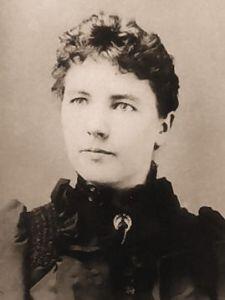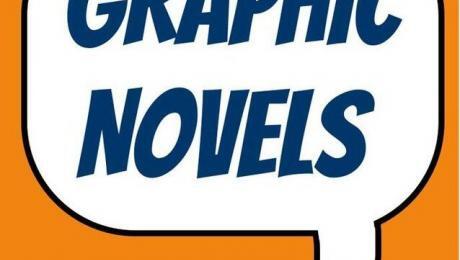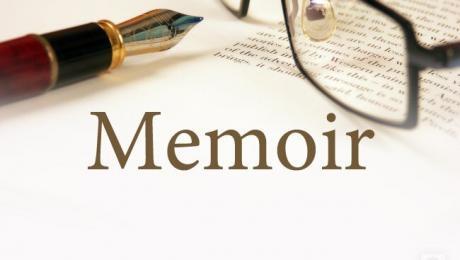Famous Writers Who Can Inspire Persevering and/or Mature Writers
Some writers bloom early and receive recognition early, while others receive recognition later (even if they start early), or become writers later in life. If you have the urge to write, take heart from those who came before you and didn’t give up, or became inspired late in life.
Sometimes Inspiration and Opportunity Are Delayed
Authors of all ages face challenges. Sometimes wanting to write and being able to write are two different things. Laura Ingalls Wilder started writing in her 40s as a columnist. When she was 64 years old her reputation-making book, “Little House in the Big Woods,” was published. Raymond Chandler began writing after he lost his job when he was 44 years old.
James Michener, Anthony Burgess, Frank McCourt, Harriet Doerr, Mary Wesley, Helen DeWitt, and Donald Ray Pollack were not ready to publish until many years after they began writing. They had more time to write than Anna Sewell and Millard Kaufman, who passed away not long after completing their works.
Harry Bernstein wrote “The Invisible Wall” in his 90s and 40 more unpublished works before that. Like Elizabeth Jolly and Helen DeWitt, he was unable to get published despite prior efforts at writing. Unlike Helen DeWitt, who had numerous fragments, but like Elizabeth Jolly, he had completed works that never got published. This is not an unlikely fate for many writers. However, he was successful at an age when fewer authors have found success. And, after his first published success, he wrote two more novels!
Perseverance Is Rewarded for Writers Who Improve Their Craft
For years, Kent Haruf toiled at improving his writing before becoming a published novelist. Philip Schultz, who started writing when he was 17, remains a rejected novelist; however, he is a successful poet. In “Poet vs. Novelist,” a New York Times article, he explained that he wrote poems to release his sorrow at not being an accepted novelist despite writing novels for more than 20 years.
His first poem was accepted when he was 28. He was awarded the Pulitzer Prize for “The Wherewithal,” a long poem in which he used techniques he had learned while writing his rejected novels. In fact, this story in verse is also his first published novel.
Philip Schultz was rewarded as a poet, rather than a novelist. Succeeding as a poet is an accomplishment to be proud of. Literature comes in many forms, and as Rabindranath Tagore and Bob Dylan’s Nobel Prizes for Literature reveal, even the poetic verses in songs can be good literature.
Networks for writers of a mature age are rare, so joining a support group like The Prime Writers network would be helpful. It is never too late to become a writer. In fact, mature writers have a larger reservoir of life experiences to inform their writing.
- Published in Writing & Editing Resources
How Storytelling Was Renewed and Refashioned by Graphic Novels
The engaging words and images mix of graphic novels (long-form narratives in the style of comic books) has enabled creative storytellers to craft compelling stories. Academic and critical respect has followed for what was once identified as an inferior reading genre.
The internet age and the reduced free time people have today have boosted the popularity of this more visual and effective method of storytelling for young and adult readers alike.
Popularized in the ’70s, graphic novels have expanded the boundaries of comic book writing. The boldness that comes naturally to this more accessible medium has encouraged writers to be revolutionizers. Graphic novel series are highly conducive to the digital format that young and adult time-challenged readers prefer.
However, the process involved in creating the novel is harder and slower for authors. It’s also less immersive than prose because of the drawing and design work that’s required.
A Powerful Tool for Creative Minds
Graphic novel writers have accepted the advantages of using this medium to boldly engage readers. Writers have used its freedom and accessibility to address important themes, tell personal stories, and take on taboos.
The range of themes in this storytelling medium is no less restricted than traditional literature. The variety of themes is illustrated in the adolescent pains addressed in “Ghost World,” the politics of “V for Vendetta,” the personal stories of immigrants in “Persepolis” and “The Best We Could Do,” and Nazi occupation as told by “Maus.” Popular graphic novels have won the Pulitzer Prize, led to film, TV, and theater adaptations, and raised the graphic art of comic book storytelling.
These visual stories pack a punch that is powerful and effective in a way that word-centric texts cannot be. As a result, educators have used graphic novels as teaching materials. In fact, the Vietnamese author of “The Best We Could Do,” Thi Bui, was a teacher before she became a novelist. The format is also conducive to narration that alternates in time and space (the fourth dimension artfully utilized by Alan Moore) and the present and the past as reflected in Bui’s novel.
Energizing Literature with Originality
Chris Ware’s “Building Stories” is being compared to “Ulysses” by James Joyce. His earlier book, “Jimmy Corrigan: The Smartest Kid on Earth” won a literary award competing with traditional novels and was praised for its “originality and energy.” Claire Armitstead, chairperson of the judges who awarded the First Book Award to Ware’s book, described what the best graphic novels have accomplished. She said they challenge “us to think again about what literature is and where it is going at the start of the 21st century.”
- Published in Writing & Editing Resources
Building Strong Agent-Author Relationships
When an author has a new manuscript, or even the strong beginnings of one, to present to agents, the author needs to be ready to nurture the relationship from the first contact. The agent-author connection is much like any other relationship in that a healthy one benefits both parties based on what they put into it. The agent will work diligently to promote the author’s work, and the author will work to make the agent’s job easier in every way possible.
Be Prepared
Before sending any manuscript for a query, the author must put an effort into researching the company and individual person he or she is submitting to. While literary houses have rules that are generally similar, each agent will have their own niche within the publishing world and will look for a very specific type of writing or type of author. They may also have their own preferences as to the length of a sample they want to read, how it should start, and what it should contain. Authors must do the groundwork first!
Be a Professional
Literary agents are in the business of making money for themselves and for authors. They have contacts in the publishing industry that can offer tremendous opportunities for both new and established authors. Winning promotion and publishing contracts requires the author be professional at all times. Even if the writing life is a casual one, authors should put on their best airs when meeting with an agent by e-mail (in their language), via video chat, or in person. Authors are selling themselves as much as they are their books.
Bear in mind, the query letter to an agent is the first impression an author will make. Written communications should focus on professional language (no slang!) and the selling points of their work. They should be polite, addressing the agent personally, and should indicate the author is serious about creating a lasting professional relationship. Agents want to work with authors they can envision having long careers with multiple successful books. Confidence without ego is also necessary.
Be a Partner
An author’s work does not end with “The End.” The end of the writing is only the beginning of the road to publishing, and the agent will be the driving partner. Likewise, signing the publishing contract does not indicate the end of the process. Publishers want authors who are comfortable on social media, willing to present their own marketing ideas and find some of their own opportunities, especially those who can establish and grow a professional network.
The agent’s position post-publishing is to support the author in promotions, marketing, social engagements, and any other means for the publisher to generate recurring sales and interest. Authors must be willing to work with their agents, not against them. The agent should not have to pull all the weight in the professional relationship, so the author needs to be aware of the publishing process from step one and be available to contribute to their own success with their agent as a strong partner.
When authors establish themselves as part of the greater writing community, they can build many relationships. Those that benefit the author should be carefully cultivated and nurtured. It will take dedication on the author’s part, but they will find the same level of support if they land a great agent. This will be the most important relationship to come out of the publishing process.
- Published in Writing & Editing Resources
An Interesting Life Deserves an Amazing Memoir
Have you done something in your life that few others have, or perhaps something your friends and family only wish they had? Have you had a life experience that has fundamentally changed the way you look at things or the way you act or live? If so, you should consider putting your experiences in writing by way of a memoir. Even if you consider yourself a “nobody,” something about you may inspire others, and that is a message worth sharing.
The most important thing to remember is that although you may hear the terms “memoir” and “autobiography” used interchangeably, there is a marked difference between these two types of manuscripts. An autobiography is denoted by the time frame it covers, usually a chronological account of a life from birth to present day. A memoir, on the other hand, focuses on an event or series of events in a person’s life that stands out and warrants its own full-length explanation and exploration.
Be Ready to Commit to your Project
Once you decide to start writing your memoir, commit adequate time to completing it. No polished book happens overnight, so be prepared to devote serious time to your project. Scraping together a few minutes a day will not do. Ideally, look for a minimum of two to three hours per day you can block out on your calendar so you can write with a sense of purpose. Save extra time if possible for those related memories that crop up and demand to be a part of your story.
Along with committing time to your writing, consider the space in which you write. Some people may write better on a beach with a notebook and pen while others may prefer a quiet office setting. You are your own boss when writing your memoir, so seek out the environment where you are most productive. In the end, if your writing space is uncomfortable and full of distractions, your writing will be, too.
Stepping Stones to Keep You Going
Take a look online, at a book store, or in a library at the memoirs of others (they are usually found under the autobiography section). Thumbing through a few, do any characteristics stand out to you? Maybe they are written with a sense of humor or an adventurous voice. Some come across as unapologetic, while others are inspiring. Take those aspects that grip you, and incorporate them into your personal storytelling style.
Speak with others: friends, family, even perfect strangers, to see if they are interested in your story. If they are and would like to know more, chances are you have a memoir worth writing well. Whether you have done interesting volunteer work, spent a month in another country, or experienced a traumatic event, it will make fantastic writing material which you only have to pour out onto paper. Your story is your own but you can share it with the world.
- Published in Writing & Editing Resources




